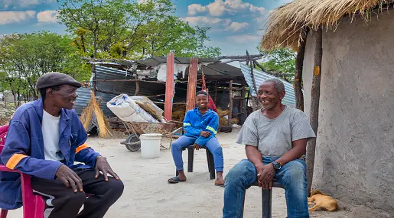PART XIII
How to speak British beyond England (continued), course 304:
Jamaican English:
English is the official language of Jamaica, but–nevertheless–the majority of the population speak Jamaican Patois, a creole language made up of an English superstrate and African substrate. Patois is a colorful, descriptive, and emphatic, creole dialect that has been shaped by African, Spanish, French, Portuguese, and English, colonial heritage.Jamaican English is the official language of Jamaica, and it is used in government, media, education, and business. As a holdover from its colonial history, the English used in Jamaica has a largely British grammar and spelling, but it has been molded by American English over the years.
Patois is enough different from English to be a language of its own with its own rules. Technically, it is incorrect to refer to it as a dialect.
Examples:
Leave me alone/don’t bother me=nuh badda mi/lef mi; take care=walk good; look at that=coo deh; children=pickney; where are you from?=weh u com fram?; somebody=sumadi; hear=ier; this=dis; rie in Jamaica is a commonly used phrase and can mean a few things–irie translates to “everything is fine”; fantastic=irie; hello=Howdy Do/How yuh duh/Howdeedo?; what’s up/how are you?–a casual greeting=wah gwaan?; it is mine=a fi mi; good looking girl=criss ting; just a little=jus a toops; boonoonoonos=term of endearment; con artist—ginnal; can you please?=a beg yuh; oh my gosh=jessum peace; excuse me=jus a word; can I pass=beg yuh pass; weh yuh up yo?/ weh yuh ah deal wid?=What are you up to?; hey there=pssst; turn there=tun deh so; thank you=tanks; girlfriend=dawta; father=fahda; mother—madda; right here=yahso; I am okay–ya man; serve you just right=ah good; wow=blouse and skirt; take my picture; tek mi picha; happy birthday=happy earth strong.


